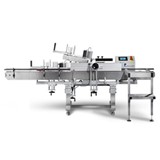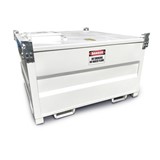The FreeRoam low cost electronic cane won first place in the Challenge while the Slim-P placed second and also won the $10,000 Humanitarian Engineering Innovation Prize.
Leader of the winning student team, Michael Shiel of Fig Tree Pocket, said the FreeRoam incorporated the latest technology which was often cheaper and lighter than the electronic components used in existing canes.
"We were keen to develop a prototype that was lighter and easier to hold than current models on the market," Shiel said.
"Electronic canes are beneficial to the vision impaired because their handles vibrate to warn a user of obstacles, and vibrate more strongly the closer to an object a user gets.
"A vibration higher in the cane handle indicates an object at head height, such as a branch, and a lower handle vibration indicates a ground-based object."
He said the team would look at incorporating a light projection device within the cane to make cane users more obvious to people in their vicinity.
Guide Dogs Queensland can see a lot of benefits in the low-cost FreeRoam electronic cane and is keen to work with students to trial it.
Guide Dogs Queensland Rehabilitation Services Manager, Bashir Ebrahim OAM, said current electronic canes on the market were manufactured overseas and retailed for around $1500.
"The QUT students have developed a prototype for a simpler model for around $200 - a massive price difference," Ebrahim said.
"Guide Dogs Queensland provides electronic canes and other devices and services free of charge to around 1500 Queenslanders annually so there's definitely a market for the FreeRoam cane."
Shiel said the student team looked forward to working with Guide Dogs Queensland to trial the design and hopefully provide a low-cost cane for the many people who would choose to use one should they be more affordable.
Second place and the Humanitarian Engineering Innovation Prize of $5000 in market research from the Australian Institute of Commercialisation, and $5000 cash from QUT for product development went to the student designed Slim-P, an ultra-slim insulin pump for use by people suffering from insulin dependent type-1 diabetes.
Designed by a team led by student Luke Bird of Paddington whose sister has type-1 diabetes, the slimline pump is designed to enable diabetics to deliver their insulin in a discrete no-fuss manner.
"There's a real need for something like this in the market," Bird said.
"When you think of how slim iPhones are and what they're capable of, it seems reasonable that diabetics should be able to self-administer insulin without using something that looks like it belongs in a hospital.
"If a more palatable method of delivery were developed it would make it easier for diabetics to make sure they administered the right amount of insulin the necessary three or four times a day without changing their wardrobe, their daily activities or draw unwanted attention.
"Delivery of the correct amount of insulin is important to ward off the longer term health implications of diabetes which can include eye and organ damage, so anything which helps people manage this condition will improve long-term quality of life and the cost of care."
QUT Deputy Executive Dean of Built Environment and Engineering, Professor Doug Hargreaves said the challenge ignited students' imaginations and showed them they could play a part in solving real world problems.
The Engineering for Humanity Challenge is an initiative of QUT and is supported by various QUT faculties and divisions, qutbluebox, Engineers Australia, LifeTec, Cerebral Palsy League, Endeavour Foundation, Queensland Government - Disability Community Care Services, and the Australian Institute of Commercialisation.

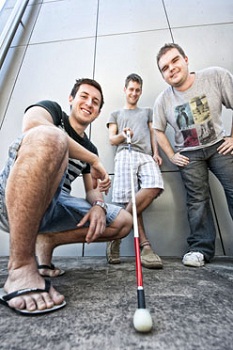
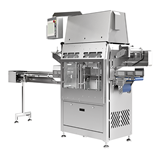
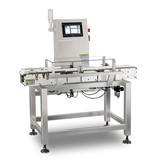
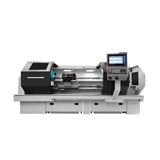

-160x160-state_article-rel-cat.png)



-160x160-state_article-rel-cat.png)







